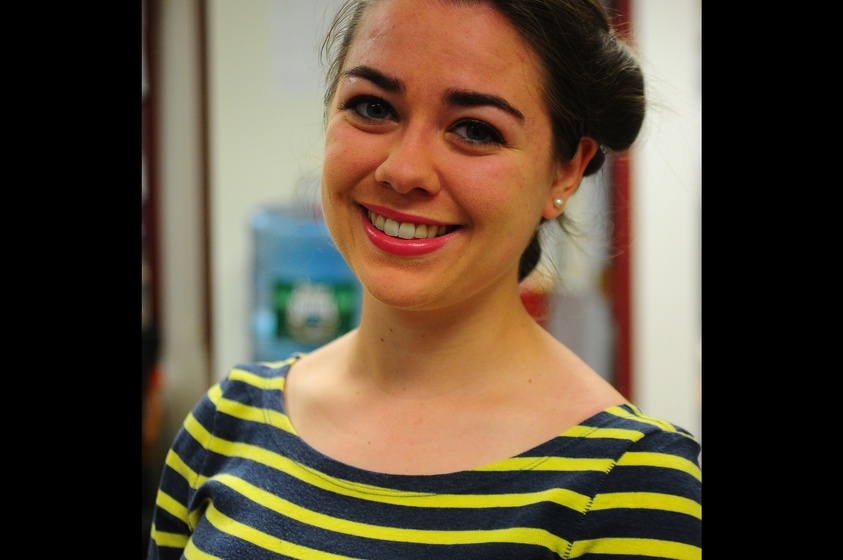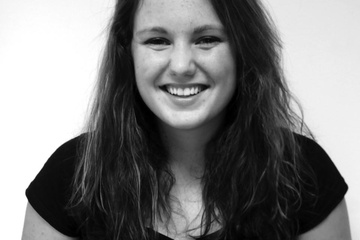Pulled over on the side of the road in my mom’s minivan, I felt like a more pathetic but less impregnated version of Juno. “Mom, I just can’t do this,” I choked out into my phone, tears streaming down my face.
I had been trying to drive myself to an interview for a summer internship and after a mishap with my GPS, I was now lost, alone, and 20 minutes late. Finally pausing from the constant activity of the preceding string of days, I had my first moment of introspection since that crazy week began. Suddenly, the weight of responsibility washed over me like a wave and left me feeling totally incapable and exhausted. I had no fight left in me. All that kept running through my head was the defeatist mantra, “maybe everyone was right, maybe I’m just not old enough to handle this.”
A week earlier, I had come home to the sight of a fire truck, an ambulance, and two police cars lining the street in front of my house, their lights in- termittently illuminating the quiet suburban scene with the red glow of alarm. Inside, I found my dad surrounded by five strange, uniformed men. At first, I was comforted by the sight of him, sitting up and coherently answering the questions of the emergency personnel, but when I realized that he couldn’t move his legs, the panic set it.
He was rushed to Mass General Hospital and put into neurological intensive care under the diagnosis of a cerebral aneurysm rupture. I followed the ambulance to the hospital that night, and was able to meet up with my parents in the emergency room. I had never seen my dad look so child-like. He laid still with his teeth chattering on the hospital bed. The smell of his vomit and the sanitizer used to clean it up was overpowering. I put my wool jacket on top of his quivering torso and watched as my mom tried to get him to move his toes. We didn’t know if he would have permanently impaired function. We didn’t know if he would suf- fer memory loss. We didn’t know if he would walk again. As my mother and I were told by the Neurology Resident on call that night, “we’ll just have to wait and see.”
The next morning I began my life as Junior Mom, doing my best to fill my mom’s role so that she could spend as much time with my dad as pos- sible. The mornings began at 7 a.m. when I would get my four youngest siblings ready for school with the help of my college-age sister. Mid-morning I would drive to Mass General to pick up my mom and drop off a family friend as replacement guard- ian of my dad. The afternoons were filled with chauffeuring my siblings to their various after-school activities. Then there was always dinner to be figured out and homework completion to be overseen. The end of the day was marked by an- other swing by Mass General to return my mom to her nightly post.
All this was supplemented by the things that weren’t on the schedule, the new responsibilities that this situation had created. I became manager of the volunteer force of friends and neighbors all graciously offering meals and carpools, who looked to me to assess the situation and then schedule and
assign specific tasks. I had to make a string of difficult phone calls to my dad’s family members to fill them in on what was happening. I felt responsible for looking after my Nonna, my dad’s mother and his only remaining immediate family member, who had moved in with us for the duration of my dad’s stay in the hospital and who was in a state of cynical and despairing shock.
Since the very first day as a Junior Mom, I was told by nearly every adult I encountered that I was taking on too much. “Can you handle another hour of driving today, Ariana?” “Are you sure that you have dinner under control?” “Be careful that you’re not wearing yourself out.” I heard and dismissed dozens of such questions and statements every day, feeling numb and able to carry on as long as I kept moving. I thought dwelling on the weight of my responsibility would be paralyzing, and I chose to keep distracting myself through doing instead.
It was not until my mini-van breakdown that I gave any of these warnings any credence. In that moment, I realized I could admit to myself that it was a lot. But that didn’t mean, as all the adults were implying, that it was too much. My respon- sibilities could empower, rather than overwhelm. Yes, it was a lot, but I could do it. Not only that, but I was doing it.
Letting myself cry allowed me a much-needed release. It only took me about 30 seconds after hanging up to realize this was in fact not the end of the world. This wasn’t defeat, this was a break which left me rejuvenated, not despairing. I was amazed to find that I was able, after a couple deep breaths, to hit the road again, this time arriving at my intended destination.
Ariana M. Albanese ’15 is a History and Literature Concentrator in Winthrop House. She’s looking forward to being promoted to ‘Senior Mom’ next year.





